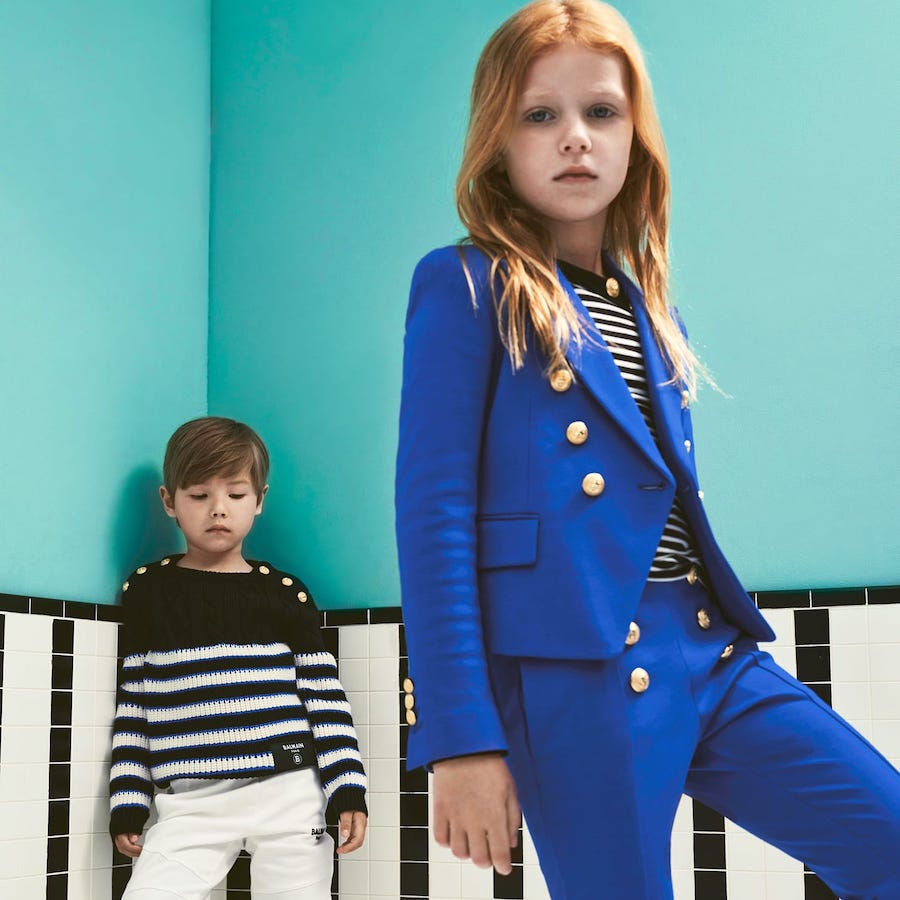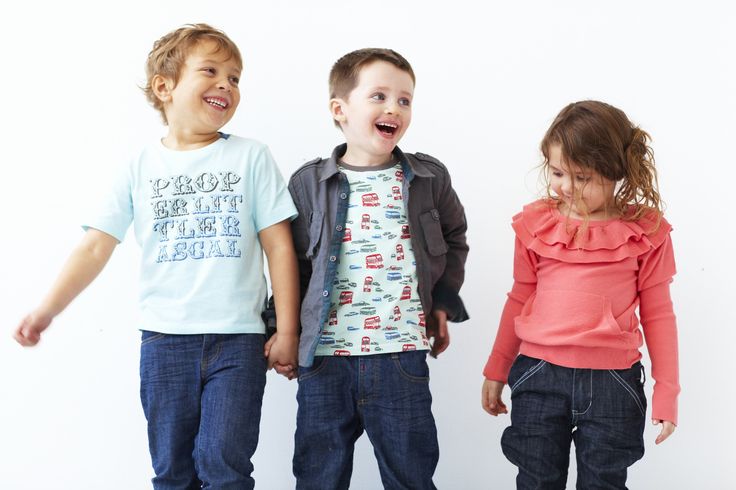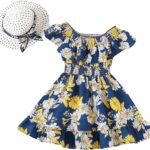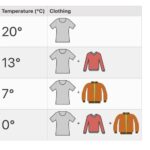Yes, kids’ clothing brands offer a wide variety of styles. From casual wear to formal outfits, options cater to every occasion.
Kids today express their personalities through fashion. As a result, numerous brands have emerged to meet diverse style preferences. Parents can find everything from playful prints to sophisticated designs. Popular brands often feature seasonal collections, ensuring fresh looks throughout the year.
Eco-friendly materials and sustainable practices are becoming more common, appealing to environmentally conscious families. With so many choices available, children can mix and match outfits that reflect their unique tastes. This variety not only enhances their wardrobe but also boosts their confidence. Exploring these options can make shopping for kids’ clothing a fun and enjoyable experience.
Table of Contents
Introduction To Kids Fashion
Kids fashion has evolved significantly. Today’s brands offer a wide range of styles. Parents want their children to look stylish and feel comfortable. This shift creates exciting options for little ones.
Current Landscape
The market for kids clothing is diverse. Many brands cater to different tastes. Here are some key aspects:
- Trendy designs that appeal to kids.
- Affordable prices for families.
- Focus on comfort and durability.
- Inclusive sizing for all body types.
From casual wear to formal outfits, choices abound. Parents can mix and match styles easily. Popular brands often collaborate with designers to create unique collections.
Evolving Tastes And Preferences
Kids today have strong opinions on fashion. They want to express themselves through their clothes. Here are some trends shaping their preferences:
- Bright colors and bold patterns.
- Character-themed apparel from movies and shows.
- Sustainable and eco-friendly fabrics.
- Gender-neutral clothing options.
Parents are noticing these shifts. They seek brands that align with their kids’ tastes. This growing demand influences brands to innovate continually.

Credit: www.kidrovia.com
Historical Perspective
The evolution of kids’ clothing brands shows a fascinating journey. Styles have transformed from simple to trendy. Understanding this history helps us see how choices have expanded.
From Basics To Fashion
In the early days, children’s clothing was quite basic. Parents focused on comfort and durability. Kids wore simple fabrics and muted colors. Over time, fashion started to influence children’s wear.
Key changes in kids’ clothing include:
- Use of brighter colors
- Incorporation of fun patterns
- Focus on trendy designs
Brands began to see children as mini fashionistas. Designers wanted to create unique styles for them. This shift made clothing more expressive and playful.
| Decade | Style Focus |
|---|---|
| 1950s | Simple and functional |
| 1970s | Bright colors and patterns |
| 1990s | Casual and sporty |
| 2000s | Trendy and chic |
Influence Of Pop Culture
Pop culture has greatly impacted kids’ clothing styles. Movies, music, and celebrities influence what kids want to wear. Iconic characters and famous figures lead to popular trends.
Some notable influences include:
- Cartoon characters on t-shirts
- Celebrity endorsements
- Fashion shows featuring child models
Brands often collaborate with popular franchises. This strategy helps them reach young audiences. The result is a mix of fun and fashionable choices.
Brand Diversity In The Market
Kids’ clothing brands offer a wide range of styles.
This variety caters to different tastes and budgets.
Parents can find options for every occasion and need.
High-end Vs. Budget-friendly
Kids’ clothing brands fall into two main categories:
- High-end brands
- Budget-friendly options
| Brand Type | Features | Price Range |
|---|---|---|
| High-end | Unique designs, premium materials | $50 and up |
| Budget-friendly | Basic styles, affordable fabrics | Under $50 |
High-end brands focus on quality and style.
Budget-friendly brands make it easy to dress kids well.
Global Brands Vs. Local Gems
The market features both global brands and local gems.
- Global brands: Well-known names with international reach.
- Local gems: Unique styles often reflecting local culture.
Global brands provide consistency in sizing and quality.
Local brands offer one-of-a-kind pieces and support small businesses.
Trend Analysis
Kids’ clothing brands constantly evolve. They adapt to new styles and preferences. Trend analysis reveals what is popular and relevant. This helps parents choose the best outfits for their children.
Seasonal Trends
Each season brings fresh styles for kids. Here are some popular seasonal trends:
- Spring: Bright colors and floral patterns.
- Summer: Light fabrics and vibrant prints.
- Fall: Layering with cozy sweaters and boots.
- Winter: Warm jackets and festive designs.
Brands focus on comfort and playfulness. They also incorporate trendy elements. This keeps kids looking stylish. Parents enjoy the variety available for every season.
Sustainable Fashion
Sustainable fashion is gaining popularity. Parents care about eco-friendly choices. Kids’ clothing brands are responding by offering:
- Organic materials that are soft and safe.
- Recycled fabrics to reduce waste.
- Ethical production practices that support communities.
Many brands now highlight their eco-friendly efforts. This attracts conscious consumers. Kids can wear stylish clothes while caring for the planet.
Influence Of Media
The media plays a huge role in shaping kids’ fashion. Trends emerge from various platforms, influencing what children wear. Brands respond by offering diverse styles to meet these trends.
Celebrity Kids As Style Icons
Celebrity kids are often seen as style icons. Their outfits inspire many young ones. Parents notice these trends and seek similar styles for their children.
- Famous children often wear trendy clothes.
- Brands create replicas of celebrity outfits.
- Social media highlights these fashion choices.
Social Media Trends
Social media platforms influence kids’ clothing choices. Platforms like Instagram and TikTok showcase exciting styles.
- Kids see their favorite influencers wearing cool outfits.
- Brands use social media to promote new collections.
- Trendy hashtags help spread popular styles.
These trends encourage brands to offer a wide variety of styles. Children want to express themselves through their clothing.
Consumer Behavior
Understanding consumer behavior helps us see what drives choices in kids’ clothing. Parents and children both play roles in these decisions. Brands need to cater to both to succeed.
Parental Influence
Parents often guide their children’s clothing choices. They consider factors like:
- Budget: Parents set a spending limit.
- Comfort: They prioritize comfort over style.
- Durability: Clothes need to last through playtime.
- Trends: Parents may follow popular trends.
Parents also focus on quality. They want clothing that can endure active lifestyles. Their influence shapes kids’ styles significantly.
Kids’ Autonomy In Choice
Kids today want to express themselves. They enjoy choosing their outfits. This desire for autonomy affects their clothing preferences.
- Personal Style: Kids prefer clothes that reflect their personality.
- Favorite Characters: Many kids choose clothes with beloved characters.
- Comfort: They want clothes that feel good.
Brands now create options appealing to kids’ tastes. Colorful designs and fun patterns attract them. This balance between parental guidance and kids’ choices is key.
Innovations In Kids Clothing
Kids clothing has evolved rapidly. Brands now focus on style, comfort, and functionality. Innovations drive this change, making clothing more exciting and useful for children.
Tech-infused Wearables
Tech-infused wearables are changing kids’ clothing. These items blend fashion with technology. Here are some examples:
- Smart shirts: Measure heart rate and activity.
- LED jackets: Light up for safety at night.
- GPS-enabled pants: Help parents track their kids.
These wearables make clothing fun and functional. Kids enjoy wearing items that connect them to technology.
Adaptive Clothing For Inclusivity
Adaptive clothing ensures all kids can dress easily. This includes designs for children with disabilities. Here’s what makes adaptive clothing special:
| Feature | Benefit |
|---|---|
| Magnetic closures | Easy for kids to put on and take off. |
| Adjustable fits | Grows with the child, saving money. |
| Soft fabrics | Comfortable for sensitive skin. |
Adaptive clothing promotes independence. It allows every child to express their style.
Sizing And Fit
Sizing and fit are crucial in kids’ clothing. Children grow quickly. They need clothes that fit well and allow movement. The right fit keeps them comfortable and happy.
Challenges
Many challenges exist in finding the right size for kids. Here are some common issues:
- Growth Spurts: Kids can grow inches in just weeks.
- Body Types: Every child has a unique shape.
- Brand Variability: Sizes differ between brands.
- Limited Size Ranges: Some brands don’t cover all sizes.
Parents often find it difficult to choose the correct size. Trying on multiple outfits can be tiring. Many brands use different sizing charts, causing confusion.
Innovations
Brands are now innovating to solve sizing issues. They introduce various solutions:
| Innovation | Description |
|---|---|
| Adjustable Features | Elastic waistbands and adjustable straps for a better fit. |
| Size Flexibility | Clothes that fit a range of sizes, growing with the child. |
| 3D Body Scanning | Technology to create more accurate size recommendations. |
| Sizing Apps | Mobile apps to help find the right size quickly. |
These innovations help ensure a better fit. Parents appreciate the effort. Kids enjoy the comfort and style.
Cultural Influences
Cultural influences shape the styles of kids’ clothing brands. These brands draw inspiration from various traditions. They offer a wide range of options for different tastes. Parents want clothing that reflects their children’s identity.
Ethnic Wear
Ethnic wear represents the rich heritage of different cultures. Many brands now include ethnic styles for kids. This clothing often features unique patterns and vibrant colors.
- Indian kurtas: Perfect for festivals and celebrations.
- African dashikis: Bright and comfortable for everyday wear.
- Mexican embroidered dresses: Full of color and creativity.
These styles allow children to connect with their roots. They also promote cultural awareness among peers. Ethnic wear is a fun way to celebrate diversity.
Cross-cultural Trends
Cross-cultural trends blend various styles into one. Kids’ clothing brands often mix elements from different cultures. This creates unique and trendy outfits.
- Graphic tees: Featuring designs from around the world.
- Harem pants: Combining comfort and style from various traditions.
- Sneakers with ethnic prints: Merging modern and traditional looks.
These trends encourage kids to express their individuality. They can wear styles that reflect their interests. Cross-cultural clothing fosters creativity and open-mindedness.
Environmental Concerns
Children’s clothing brands are taking steps to address environmental issues. Parents want stylish options that are also eco-friendly. Brands are focusing on sustainable practices to help the planet.
Eco-friendly Materials
Many brands now use eco-friendly materials. These materials help reduce pollution. Common eco-friendly fabrics include:
- Organic cotton: Grown without harmful pesticides.
- Bamboo: A fast-growing plant that needs less water.
- Recycled polyester: Made from recycled plastic bottles.
Using these materials helps decrease waste and saves energy. Eco-friendly clothing is safer for kids and the planet.
Recycling And Upcycling
Brands also focus on recycling and upcycling. This means reusing old clothes in new ways. Here are some benefits:
- Reduces waste in landfills.
- Saves resources needed for new clothing.
- Encourages creativity in designs.
Some companies offer programs to recycle clothes. Parents can send in old items for new ones. This keeps clothes in use longer, which helps the environment.
Challenges Facing The Industry
The kids’ clothing industry faces several significant challenges. These issues impact brand integrity and consumer trust. Understanding these challenges helps consumers make informed choices.
Counterfeit Products
Counterfeit products are a major problem in the kids’ clothing market. Fake brands often mimic popular styles. Parents may unknowingly buy these items, thinking they are genuine.
- Low quality: Counterfeit products usually have poor materials.
- Safety risks: Many counterfeit items do not meet safety standards.
- Brand damage: Counterfeits hurt the reputation of real brands.
Recognizing authentic brands helps parents avoid these issues. Look for official labels and trusted retailers.
Fast Fashion Concerns
Fast fashion in kids’ clothing poses serious environmental issues. Brands produce large quantities quickly. This leads to significant waste and pollution.
| Impact | Description |
|---|---|
| Waste | Many clothes end up in landfills. |
| Pollution | Production processes harm air and water quality. |
| Ethical concerns | Workers may face unfair treatment and low wages. |
Brands must focus on sustainable practices. Parents can support companies committed to ethical production. Making informed choices helps create a better future for the industry.
Future Of Kids Fashion
The future of kids’ fashion is exciting. Brands focus on variety and innovation. Trends change quickly, reflecting kids’ needs and preferences. Parents seek styles that are fun, functional, and affordable.
Predicted Trends
Kids’ fashion will see many new trends. Here are some predicted styles:
- Sustainable materials: Eco-friendly fabrics will rise.
- Gender-neutral clothing: Styles for all kids, regardless of gender.
- Customized outfits: Personalization will be popular.
- Tech-inspired designs: Fashion will blend with technology.
These trends cater to modern kids. They want clothes that express their personalities.
Technological Advancements
Technology will shape kids’ fashion in many ways:
| Advancement | Description |
|---|---|
| Smart fabrics | Clothes that adapt to temperature and moisture. |
| Virtual fitting rooms | Try on clothes digitally before buying. |
| 3D printing | Create custom designs on-demand. |
These advancements will enhance kids’ shopping experiences. Parents and kids will enjoy more options.
How To Choose The Right Style For Your Child
Choosing the right style for your child can be fun. Kids’ clothing brands offer many options. Focus on what works for your child. Think about their comfort and preferences.
Comfort Vs. Style
Comfort is key for kids’ clothing. Children need to move freely. Here are some tips:
- Soft fabrics: Look for cotton or bamboo materials.
- Right fit: Avoid clothes that are too tight or loose.
- Easy to wear: Choose clothes with simple fastenings.
Style matters too. Kids want to express themselves. You can find a balance between comfort and style. Check for trendy designs that feel good.
Age-appropriate Selections
Choose clothing that fits your child’s age. Styles should match their interests. Here are some age-appropriate suggestions:
| Age Group | Style Suggestions |
|---|---|
| 0-2 years | Bright colors, easy snaps, soft fabrics |
| 3-5 years | Cartoon characters, playful patterns, durable materials |
| 6-8 years | Trendy prints, comfortable jeans, sporty wear |
| 9-12 years | Fashionable choices, fitted styles, mix-and-match options |
Encourage your child to pick their favorite styles. This builds confidence. Make sure their choices are suitable for their age.

Credit: www.facebook.com

Credit: www.amazon.com
Frequently Asked Questions
Do Kids Clothing Brands Have Trendy Options?
Yes, many kids’ clothing brands offer trendy styles that reflect current fashion trends, ensuring kids look stylish and feel comfortable.
What Styles Do Kids Clothing Brands Offer?
Kids’ clothing brands provide a range of styles, including casual wear, formal attire, activewear, and themed outfits for various occasions.
Are There Sustainable Kids Clothing Brands?
Yes, numerous brands focus on sustainable practices, using eco-friendly materials and ethical production methods to create stylish kids’ clothing.
Do Kids Clothing Brands Cater To All Sizes?
Many kids’ clothing brands offer a wide range of sizes, ensuring that every child can find the perfect fit for their body type.
Conclusion
Kids’ clothing brands truly offer an impressive variety of styles. From playful prints to classic designs, there’s something for every child. Parents can easily find outfits that reflect their child’s personality. This diversity makes shopping for kids’ clothes an enjoyable experience.
Embrace the options and let your child’s style shine!







